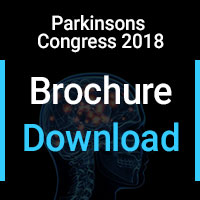
Byung-Jun Park
Daejeon University, South Korea
Title: HEPAD, a novel therapeutic approach of Parkinson’s disease
Biography
Biography: Byung-Jun Park
Abstract
Parkinson’s disease (PD) is a neurodegenerative disorder involving abnormal body movements. The degenerative loss of dopaminergic neurons in the substantia nigra leads to the onset of PD symptoms, including slow movement, tremor, stiffness, and abnormal posture. Because L-3,4-dihydroxyphenylalanine (L-DOPA) treatment is very effective for symptom inhibition, it is the most widely prescribed treatment of patients with PD. However, long-term L-DOPA treatment is not recommended because of its serious side effects, including dyskinesia. Moreover, L-DOPA does not prevent the progression of PD. Therefore, a novel therapeutic approach is greatly needed for PD. Hepad, a herbal medicine, consists of six Korean medicinal herbs that were selected based on Korean medicine theory. The treatment of patients with PD using Hepad has been clinically effective. In addition, Hepad treatment reduces the required doses of conventional PD drugs, and some patients were able to terminate conventional PD treatments without additional symptom manifestation. A preclinical study has reported that Hepad prevents neuronal cell death by suppressing the production of reactive oxygen species. These neuroprotective effects of Hepad have also been observed in animal experiments. Hepad treatment in a PD animal model increased dopaminergic neuron number and dopamine levels in the substantia nigra to similar or higher levels than those in L-DOPA-treated animals. Considering the complexity of PD, a multi-targeted approach with multiple compounds would be more effective than single-compound treatment. Taken together, these results suggest that Hepad, a mixed Korean herbal medicine, would be an effective treatment for patients with PD.

